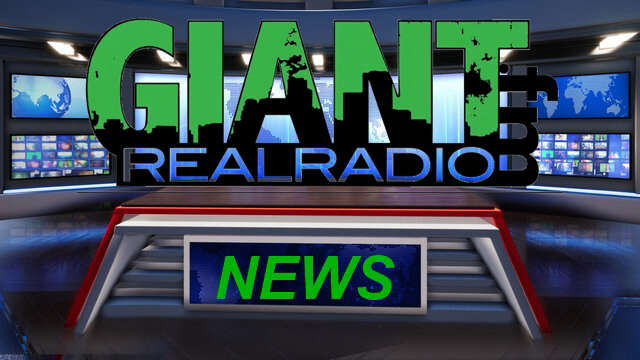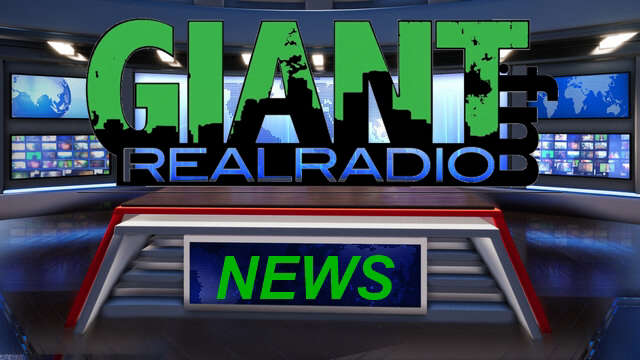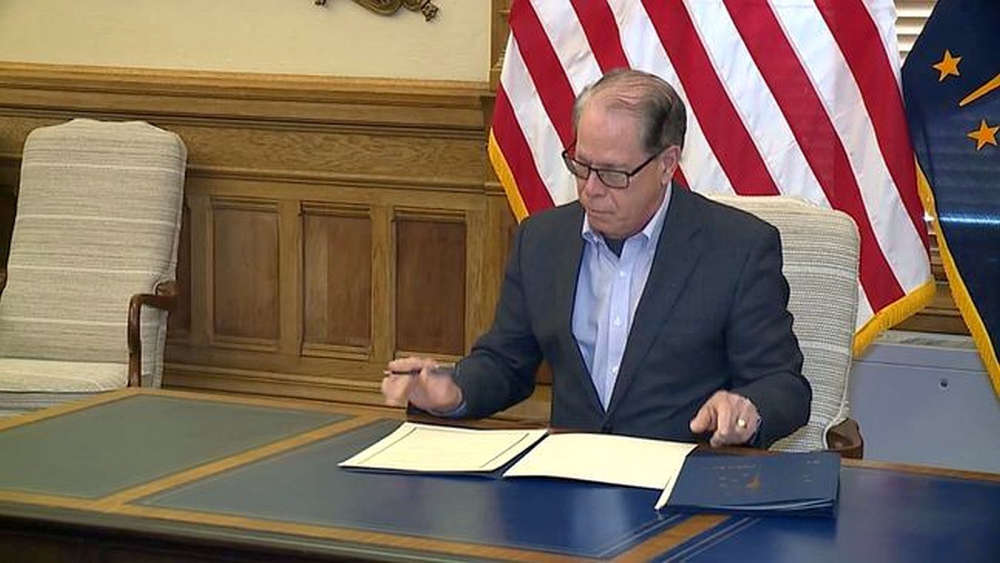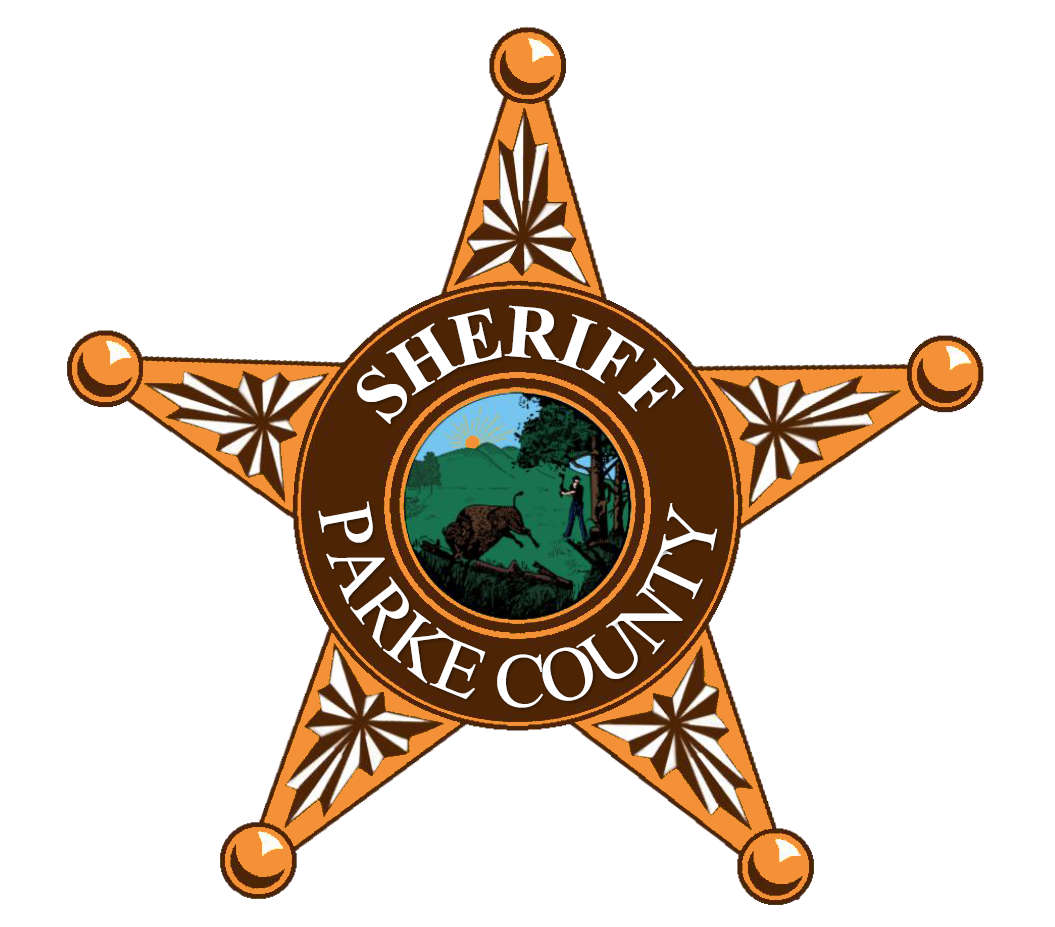
Republican lawmakers in the Senate and the House appear to have reached a final budget compromise, as detailed in a late Wednesday afternoon press conference with Gov. Mike Braun.
A dismal forecast last week projecting a $2 billion shortfall — with an additional $400 million less available in the current budget cycle — hampered Republican spending plans. Under the updated proposal, public health programs, economic development and higher education got bigger cuts and total reserves dropped about three percentage points from the Senate budget to just above 10%.
Legislators also increased taxes on multiple forms of tobacco — not just cigarettes — in the final budget compromise.
House Speaker Todd Huston shares budget details on April 23, 2025. (Whitney Downard/Indiana Capital Chronicle)
“We’re reducing government spending while funding our most critical priorities and providing tax relief for Hoosiers,” said House Speaker Todd Huston, pointing to continuing income tax cuts. “We’re in a good position to weather some potentially lean times because of our commitment to financial responsibility.”
Senate Pro Tem Rodric Bray said that, similar to projected local government budget decreases under a property tax measure already signed into law, state government will also operate under a slim budget.
“We have asked local governments … to spend within their means and tighten their belts,” said the Martinsville Republican. “We’re doing exactly the same thing here.”
Long-sought universal school choice vouchers will become reality in the second budget year at a cost of roughly $93 million.
Currently, Indiana’s vouchers are available to Hoosier earning 400% of the amount required for a student to qualify for the free or reduced-price lunch program, or roughly $220,000. An estimated 3.5% of families don’t qualify under the current eligibility guidelines.
Without the voucher expansion, K-12 will get $861 million dollars over the next two years, or a 2% increase annually when excluding curricular materials.
Braun tied projected final woes to national economic uncertainty of the previous four years, though much of the market volatility has occurred since President Donald Trump took office in January.
“Sooner or later, those chickens come home to roost,” he said.
Braun said he was “the loudest voice” on the federal deficit during his term in Congress, which overlapped with Trump’s first term and President Joe Biden.
Budget details
Cigarette taxes will increase by $2 to just under $3 a pack, with proportional increases for other forms of tobacco. Sen. Ryan Mishler, R-Mishawaka, said those funds will offset increases to Medicaid.
Such growth will bring in nearly $800 million in cigarette taxes alone with another $50 million for other forms of tobacco.
Tax increases are one of the most effective ways to curb cigarette use, which does contribute to the state’s overall poor health metrics and Medicaid expenses.
Extra budget provisions:
A caseload study for the Indiana Department of Child Services rather than a repeal of caps
Creates a delinquent tax amnesty program for Hoosiers who have an unpaid tax liability that was due before January 1, 2023
Granting the Indiana Department of Administration “sole” policy control over the Statehouse’s meditation room
Resolving conflicting language over the Indiana Historical Society’s state lease
No salary increases for General Assembly members for the two-year budget cycle
Penalizes certain delayed payments from Managed Care Organizations
Reduced “Freedom and Opportunity” education line item that can be used to fund dropout prevention and other K12 programming
Reduces eligibility for On My Way Pre-K and subsidized child care
Requires higher education institutions to review department promotions and tenure policies relating to productivity
Bray called it “a really good policy” to discourage smoking, even if the expected tax revenue decreases over time.
“That’s a good thing, because we think it means we have fewer smokers,” Bray said.
Additionally, three agencies — the Department of Correction, the Department of Child Services and the Family and Social Services Administration — will have a combined augmentation fund pool of $300 million to cover unexpected expenses. Outside of K-12 funding, which makes up 47% of the budget, those three agencies get the largest amount of state dollars.
“It just gives flexibility during challenging times,” said Mishler, noting that the fund will be distributed at the governor’s discretion.
The Indiana Economic Development Corp. had its budget reduced between 25-30%, coming on the heels of news from Indiana Legislative Insight that the governor’s office was considering a major audit of the quasi-public agency.
Most agencies and departments — including the offices of statewide elected officials and the Commission for Higher Education — also saw a 5% reduction in their appropriation.
But a two-year-old program to supplement local public health departments took a 60% cut, with funding falling from $100 million each year to $40 million.
Bray noted that much of those funds distributed to counties and some municipalities hadn’t been spent, or roughly 45% of the dollars sent out last year.
“I think they’re still trying to build up and roll out their programs,” said Bray, emphasizing a desire to continue funding the program into the future.
Democratic pushback
Details of the final budget compromise were revealed to Democrats at the same press conference and leaders of the respective caucuses said more time would be needed to analyze the full document.
“As this budget is digested over the next 24 hours, we’re going to have much more to consider. We’ve got to weigh just how public education and the needs of our children are being met. We have to weigh if Medicaid needs … and the elderly, the working Hoosiers, (and) everyday people, if those are being met,” said Sen. David Niezgodski, of South Bend.
Sen. David Niezgodski, D-South Bend, talks to reports about the budget on April 23, 2025. (Whitney Downard/Indiana Capital Chronicle)
Sen. Andrea Hunley, a former principal, criticized the voucher expansion for benefitting the “wealthiest families in the state,” noting that impoverished families wouldn’t see as much promised relief under the earlier property tax plan.
“Families with home values that are assessed at under $150,000 actually are going to see an increase in their property tax bills,” the Indianapolis Democrat said. “Then at the same time, we’re going to be giving greater breaks to our wealthiest families … it’s just not a prudent time to look at voucher expansion.”
Hunley also questioned the commitment to reducing Medicaid expenses when Republicans cut public health funding.
“We know that everyone’s got to make sacrifices this session but, again, it’s going to be on the back of the Hoosiers that need the support the most,” Hunley said.
Rep. Greg Porter pointed to an event last week with Trump cabinet official Robert F. Kennedy Jr. and Dr. Mehmet Oz, who leads the Centers for Medicare and Medicaid Services. Both appeared alongside Braun to announce a flurry of health-related executive orders.
“… now we’re down to $40 million (annually). Is that making Indiana healthy again?” Porter asked, borrowing a phrase coined by the trio. “I think it’s making us extremely vulnerable when it comes to health care.”
Though Porter praised the inclusion of the cigarette tax increase and the IEDC scrutiny, the Indianapolis Democrat said he didn’t support the spending plan until he learned more about K-12 funding and other provisions.
“I don’t think it’s a budget, at this point, that we can completely embrace.”


 INDOT marks official start of 2025 construction season, urges importance of traveling safely in work zones
INDOT marks official start of 2025 construction season, urges importance of traveling safely in work zones
 Dana man killed in officer-involved shooting
Dana man killed in officer-involved shooting
 Bridgeton Rendezvous slated for this weekend
Bridgeton Rendezvous slated for this weekend
 Montezuma looking to raise funds for new dock along Wabash River
Montezuma looking to raise funds for new dock along Wabash River
 Three arrests in February burglary at Kirby’s Food IGA
Three arrests in February burglary at Kirby’s Food IGA
 Reckless driving complaint leads to drug related and speeding citations
Reckless driving complaint leads to drug related and speeding citations
 Stolen truck recovered, juvenile suspect not found
Stolen truck recovered, juvenile suspect not found
 Parke Heritage livestock judging teams in competition
Parke Heritage livestock judging teams in competition
 Governor Braun directs flags to be flown at half-staff statewide for Pope Francis
Governor Braun directs flags to be flown at half-staff statewide for Pope Francis
 Native son Byrum adapting to superintendent role at North Vermillion
Native son Byrum adapting to superintendent role at North Vermillion
 ISP: Stay alert and share the road with farm equipment this spring
ISP: Stay alert and share the road with farm equipment this spring
 Busseron Creek to offer prime spot for outdoor recreation and support for national security
Busseron Creek to offer prime spot for outdoor recreation and support for national security
 Governor Braun announces partnership to crack down on crime involving ‘nuisance bars’
Governor Braun announces partnership to crack down on crime involving ‘nuisance bars’
 Man shot trying to flee from and collide with law enforcement vehicles in stolen U-Haul
Man shot trying to flee from and collide with law enforcement vehicles in stolen U-Haul
 Rockville Retro to feature antiques and more
Rockville Retro to feature antiques and more
 Public input sought by Vermillion County Solid Waste District
Public input sought by Vermillion County Solid Waste District
 Off the Square Artisans preps for 4th Anniversary Celebration
Off the Square Artisans preps for 4th Anniversary Celebration
 Resident returns from winter away from home to find theft from garage
Resident returns from winter away from home to find theft from garage




